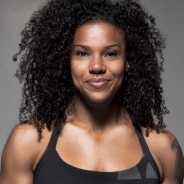
Troyan, Tunnicliffe take first in lengthy swim triplet.





Carson, California—If the bus was full of fear in 2012, it was full of focus in 2014.
Two years ago, the individual athletes were driven to Camp Pendleton at dawn for a long endurance test that started with a 700-m swim. Back then, the bus was silent, with many competitors thinking about surviving rather than thriving after U.S. Marines had delivered a briefing with warnings of rip tides, sharks, unexploded ordnance and other hazards of a military installation.
In 2014, on a short bus ride from the Manhattan Beach Marriott to Hermosa Beach Pier, the mood was different. The mood was lighter, even for those who chose to sit quietly with headphones on while Scott Panchik and others joked around. There was less doubt and more determination, and you got the sense a lot of athletes weren’t thinking of finishing but rather finishing first.
Athletes had certainly been warned about a swim event. The Games had opened in the water for three previous years, and it would have been foolish to ignore the pattern: What is past is often prologue in the CrossFit Games.
As male athletes charged the surf like a young David Hasselhoff, it was immediately obvious the ocean was under assault—at least by most. Some, of course, were far from fish, but about half the field sprinted into the waves with abandon, while two-thirds moved with confidence. The final third looked tentative as they waded into the water and took breakers of about 1 to 3 feet in the chest.
As expected, Jordan Troyan led from start to finish. The former All-American and lifeguard increased his lead during each swim section, and he maintained it for the most part on the kettlebell thrusters and sand-eating burpees.
A break of six athletes—including Jonne Koski, Khan Porter and Josh Bridges—chased Troyan, and the test might have reminded Bridges of rugged, sandy BUD/S training in the U.S. Navy. The break couldn’t catch the leader, though Koski passed others to finish second, 2 minutes behind Troyan. Bridges was third, and defending Games champ Rich Froning was eighth.
Koski, who has experience in the water, expected to do well and said the waves provided some challenge even if some in the crowd laughed at swells unfit for a surfboard.
“It was tough … to swim there, but it was easy to swim back,” he said.
He added: “It was hard to get the speed up, but after 50 m it got much easier.”
Troyan relied on his experience to take the win. He said he picked up his head every three to five strokes to sight his course, and he made adjustments for the current. When he was a lifeguard, he and the others would check the currents when they raced, and he said he "wanted to head a little left" at Hermosa Beach to stay on track.
"You don't want to have to fight the current," he added.
The women’s event was won by a sailor who has no desire to leave the boat.
“To be honest, I’m scared of the water,” said Anna Tunnicliffe, who won a gold medal in sailing at the 2008 Olympic Games. She was 25 seconds ahead of Chyna Cho. Kara Webb took third.
Elisabeth Akinwale was still on the beach when time expired, though she had prepared to swim at the Games.
"It's tough when you don't have access to that environment," she said, referencing swimming in the ocean.
The athlete from Illinois said it was "a mental thing" to "feel like you're moving backwards,” and she noted she was too comfortable in her training.
"I shouldn't have been comfortable," she said.
Ten other women did not make it home under the 45-minute time cap, and six men had missed the finish line earlier in the day.
Tunnicliffe, despite her preference to be above the waves, was prepared to hit the water.
“I think you’ve got to expect it now,” she said. “It’s been four years. … You have to be a well-rounded athlete.”
For complete results, visit the Leaderboard.










